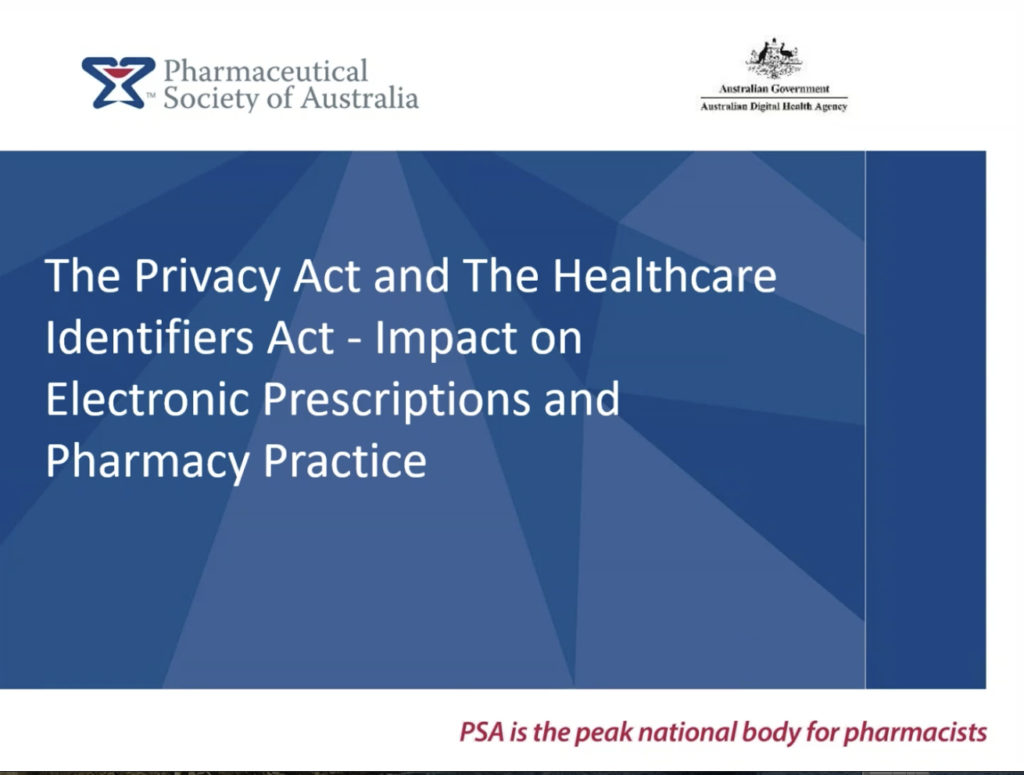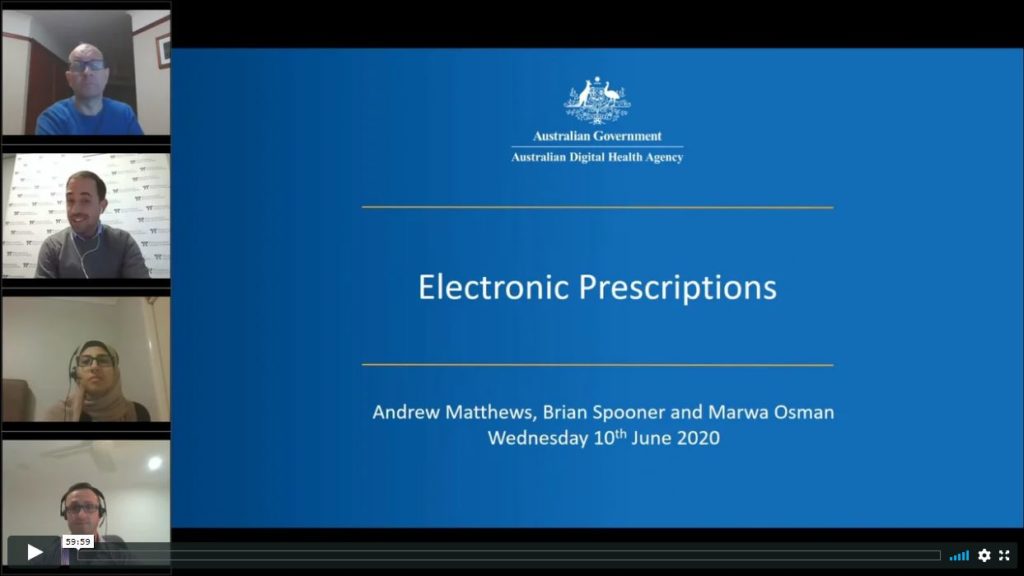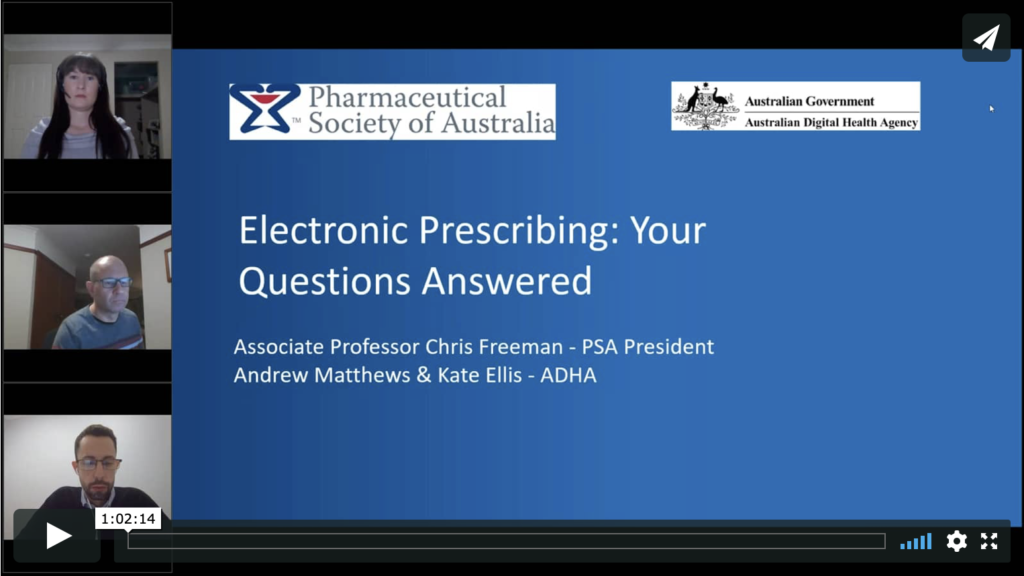Find out more
The following list of resources can help with further information to assist you with implementing electronic prescriptions in your pharmacy.
Have more questions?
We have answers to help you get your pharmacy ready for electronic prescriptions.
Our specially trained electronic prescriptions team are ready to support you by calling 1300 955 162 between 8.30am to 7.00pm AEST or emailing ep@psa.org.au
Electronic prescriptions courses now available
The Australian Digital Health Agency is offering electronic prescriptions eLearning courses for pharmacists.
Electronic prescriptions form part of the broader digital health and medicines safety framework. They enable the prescribing, dispensing and claiming of medicines, without the need for a paper prescription. Prescribers and patients can choose an electronic prescription as an alternative to a paper prescription.
Electronic prescriptions provide greater choice for patients, support digital health services such as telehealth to ensure continuity of patient care, and provide an opportunity to protect community members and healthcare providers from exposure to infectious diseases (for example, COVID-19).
Changes have now been made to Commonwealth legislation to recognise an electronic prescription as a legal form to allow medicine supply. This means that authorised prescribers are now able to issue an electronic prescription using their clinical software.
The eLearning courses, available free at training.digitalhealth.gov.au, include three modules:
- Introducing electronic prescriptions
- Using electronic prescriptions
- Preparing for electronic prescriptions
After completing the course, learners will be able to:
- Describe what electronic prescriptions are and where they are stored
- Discuss the token model and how it is used to prescribe and dispense medicines
- Identify key legislative and software conformance requirements
- Outline the steps that you need to follow to prepare the organisation for electronic prescriptions
- Respond to common patient questions about electronic prescriptions.
The course includes a patient case study to illustrate how a doctor generates an electronic prescription during a consultation, how the patient receives their prescription, and how their medicine is dispensed in a pharmacy. Guidance is provided on how to answer patient questions throughout the modules and videos are used to demonstrate how to prepare for electronic prescriptions.
CPD credits for pharmacists will be available upon the successful completion of each of the modules.
In preparation for being more digitally enabled, healthcare providers are also reminded that the Agency has recently released a free Digital Health Security Awareness eLearning course, also available at training.digitalhealth.gov.au.





